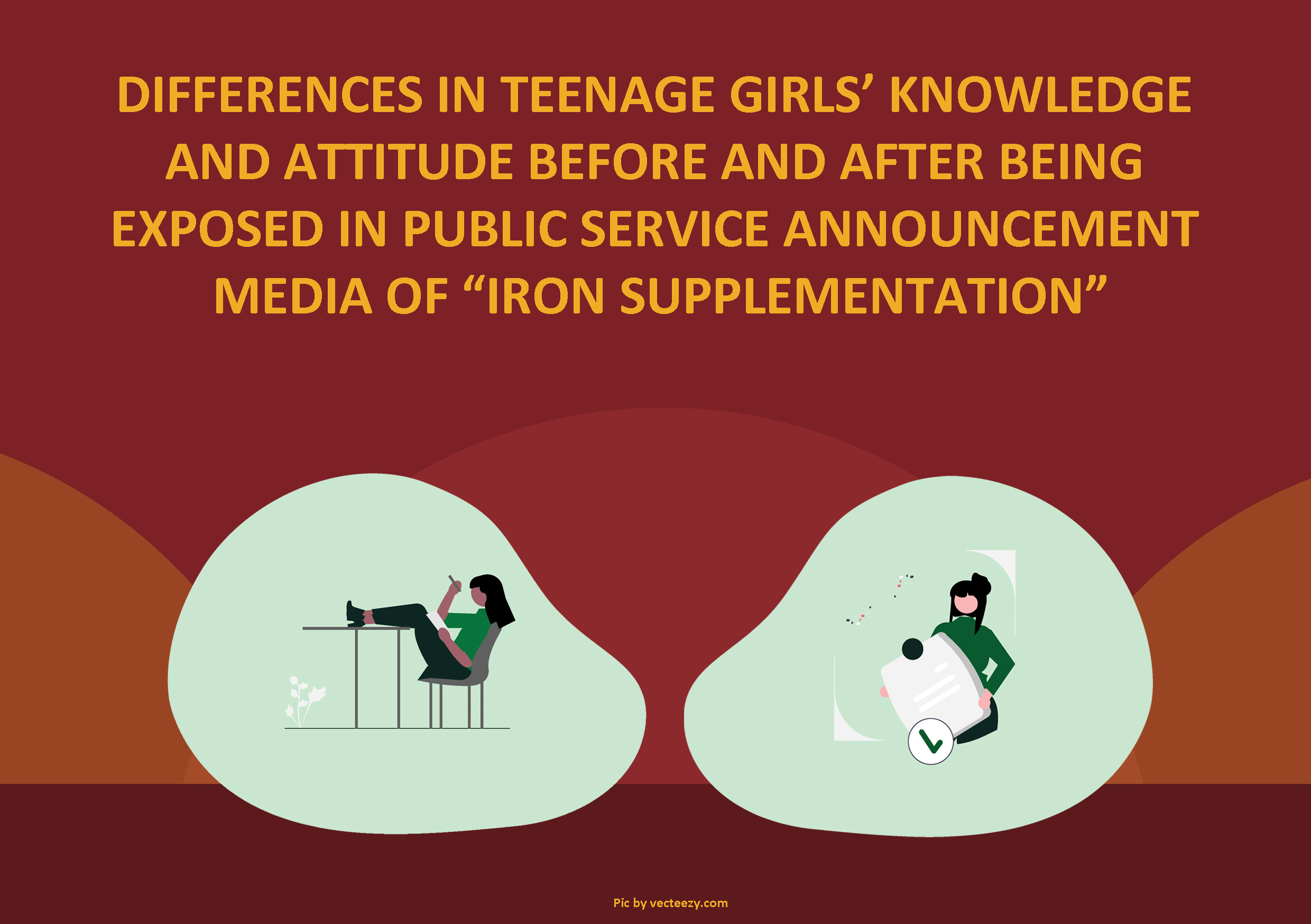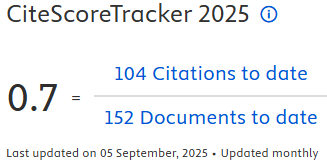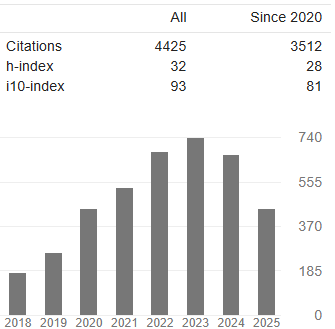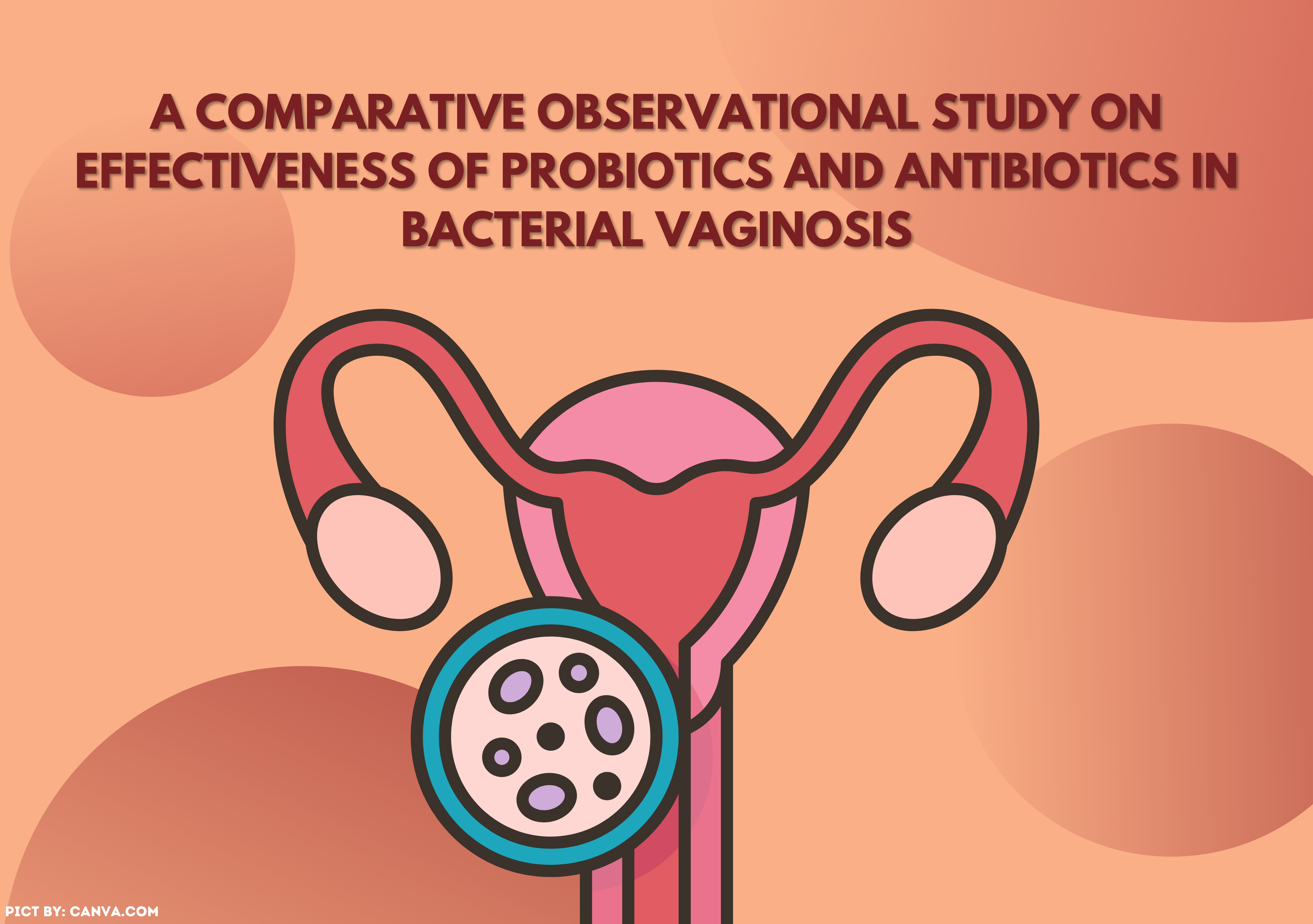DIFFERENCES IN TEENAGE GIRLS' KNOWLEDGE AND ATTITUDE BEFORE AND AFTER BEING EXPOSED IN PUBLIC SERVICE ANNOUNCEMENT MEDIA OF "IRON SUPPLEMENTATION" (Study at SMP Negeri 10 Surabaya)

Introduction: Teenage girls are included in groups who are prone to anemia. Various attempts have been made to prevent anemia in teenage girls. Public service announcement of "Iron Supplementation" is one of the health promotion media related to the prevention of anemia. This research aims to determine the difference in the knowledge and attitudes of teenage girls before and after exposure to public service announcement media of "Iron Supplementation". Methods: This research is a quantitative study with pseudo-experimental methods. The knowledge and attitude variables are measured by the Paired T-test test and the Mann-Whitney test. The study subject amounted to 30 subjects for each group. Result: The results of the analysis show that there were differences in the students' knowledge (p = 0.00) before and after watching videos in both the "selfie" group and the "animation" group. There were differences in students' attitudes before and after watching the video on the "selfie" group (p = 0.00). However, there was no difference in the student's attitudes toward the "animation" group (p= 0.469). Conclusion: There was no difference in students' knowledge between selfie groups and animation groups after watching videos. There was a difference in attitudes between the "selfie" group and the "animation" group after watching videos. Public service announcement is needed in delivering health messages for changes in knowledge and attitudes. However, there is still a need for mentoring and direct support from teachers
Aeni, N. and Yuhandini, D.S., 2018. Pengaruh Pendidikan Kesehatan dengan Media Video dan Metode Demonstrasi Terhadap Pengetahuan SADARI. Care : Jurnal Ilmiah Ilmu Kesehatan, 6(2), p.162. p.162. https://doi.org/10.33366/cr.v6i2.929
Afifah, I., 2011. Jaring Kesehatan Mental Emosional Siswa-Siswi. [online] Website Resmi Dinas Kesehatan Kota Surabaya.
Arisman, 2010. Gizi dalam Daur Kehidupan : Buku Ajar Ilmu Gizi. 2nd ed. Jakarta: EGC.
Briawan, D., Arumsari, E. and Pusporini, P., 2011. Faktor Risiko Anemia Pada Siswi Peserta Program Suplementasi. Jurnal Gizi dan Pangan, 6(1), p.74. http://doi.org/10.25182/jgp.2011.6.1.74-83
East Java Provincial Health Office, 2017. Profil Kesehatan Propinsi Jawa Timur 2017. [online]
Ministry of Health, 2016. ILM TV Tablet Tambah Darah (TTD)-Kemenkes 30 sec. [online] Official Website of the Ministry of Health of the Republic of Indonesia.
Ministry of Health, 2018. Profil Kesehatan Republik Indonesia Tahun 2017.
Ministry of Health, 2018. Laporan Nasional Riset Kesehatan Dasar 2018. [online] pp.1–582..
Martini, 2015. Faktor - Faktor Yang Berhubungan dengan Kejadian Anemia pada Remaja Putri di MAN 1 Metro. Jurnal Kesehatan, VIII(1), pp.1–7. https://doi.org/10.26630/jk.v7i3.230
McLean, E., Cogswell, M., Egli, I., Wojdyla, D. and De Benoist, B., 2009. Worldwide prevalence of anaemia, WHO Vitamin and Mineral Nutrition Information System, 1993-2005. Public Health Nutrition, 12(4), pp.444–454. https://doi.org/10.1017/S1368980008002401
Meidiana, R., Simbolon, D. and Wahyudi, A., 2018. Pengaruh Edukasi melalui Media Audio Visual terhadap Pengetahuan dan Sikap Remaja Overweight. Jurnal Kesehatan, 9(3), p.478. https://doi.org/10.26630/jk.v9i3.961
Mularsih, S., 2017. Hubungan Pengetahuan Remaja Putri Tentang Anemia dengan Perilaku Pencegahan Anemia pada Saat Menstruasi di SMK Nusa Bhakti Kota Semarang. Jurnal Kebidanan, 6(2), p.80. https://doi.org/10.26714/jk.6.2.2017.80-85
Notoatmodjo, S., 2010. Ilmu Perilaku Kesehatan. Jakarta: Rineka Cipta.
Notoatmodjo, S., 2012a. Metodologi Penelitian Kesehatan. Jakarta: Rineka Cipta.
Notoatmodjo, S., 2012b. Promosi Kesehatan dan Perilaku Kesehatan. Jakarta: Rineka Cipta.
Nuradhiani, A., Briawan, D. and Dwiriani, C.M., 2017. Dukungan Guru Meningkatkan Kepatuhan Konsumsi Tablet Tambah Darah pada Remaja Putri di Kota Bogor. Jurnal Gizi dan Pangan, [online] 12(3), pp.153–160. https://doi.org/10.25182/jgp.2017.12.3.153-160
Nurbaiti, N., 2019. Faktor-Faktor yang Berhubungan dengan Pencegahan Anemia pada Remaja Putri di SMA Negeri 4 Kota Jambi Tahun 2018. Jurnal Ilmiah Universitas Batanghari Jambi, 19(1), p.84. https://doi.org/10.33087/jiubj.v19i1.552
Nutrition International, 2018. Weekly Iron and Folic Acid for Reducing Adolescent Anaemia in Indonesia. [online] Nutrition International.
Pujiyanto, 2013. Iklan Layanan Masyarakat. Yogyakarta: Penerbit Andi.
Riskesdas, 2013. Riset Kesehatan Dasar (RISKESDAS) 2013. Laporan Nasional 2013.
Risva, T.C. and Rahfiludin, M.Z., 2016. Faktor-Faktor Yang Berhubungan dengan Kebiasaan Konsumsi Tablet Tambah Darah Sebagai Upaya Pencegahan Anemia pada Remaja Puteri (Studi pada Mahasiswa Tahun Pertama di Fakultas Kesehatan Masyarakat Universitas Diponegoro). Jurnal Kesehatan Masyarakat (e-Journal), [online] 4(3), pp.243–250.
Santi, S.M., Sabrian, F.- and Karim, D.-, 2014. Efektifitas Pendidikan Kesehatan Menggunakan Media Audiovisual terhadap Perilaku Pencegahan Filariasis. Jurnal Online Mahasiswa (JOM) Bidang Ilmu Keperawatan, [online] 1(2), pp.1–8.
Sari, N.W., 2019. Faktor Kejadian Anemia Pada Remaja Putri di MTSN Talawi Kota Sawahluto. Jurnal Penelitian dan Kajian Ilmu, [online] XIII(4), pp.70–76.
Sarwono, S., 2010. Psikologi Remaja. Jakarta: PT RajaGrafindo Persada.
Setyono, F., 2010. Hubungan Tingkat Pengetahuan Gizi, Body Image, dan Tindakan Diet dengan Status Anemia dan Status Gizi Remaja Putri. Universitas Airlangga.
Tindaon, R.L., 2018. Pengaruh Komunikasi, Informasi, dan Edukasi (KIE) melalui Media Leaflet dan Video terhadap Pengetahuan dan Sikap Remaja tentang Paparan Pornografi di SMP Negeri 1 Sidamanik Kec. Sidamanik Kab.
Simalungan Tahun 2016. Jumantik, [online] 3(1), pp.44–64.
WHO, 2011. Role of Weekly Iron and Folic Acid Supplementation. Prevention of Iron Deficneincy Anaemia in Adolescents, [online] pp.7–8.
WHO, 2015. The global prevalence of anaemia in 2011. Geneva: World Health Organization.
Yuniarti, Rusmilawaty and Tunggal, T., 2015. Hubungan Antara Kepatuhan Minum Tablet Fe dengan Kejadian Anemia Pada Remaja Putri MA Darul Imad Kecamatan Tatah Makmur Kabupaten Banjar. Jurnal Publikasi Kesehatan Masyarakat Indonesia, [online] 2(1), pp.2011–2016.
Copyright (c) 2022 The Indonesian Journal of Public Health

This work is licensed under a Creative Commons Attribution-NonCommercial-ShareAlike 4.0 International License.
- The authors agree to transfer the transfer copyright of the article to The Indonesian Journal of Public Health effective if and when the paper is accepted for publication.
- Authors and other parties are bound to the Creative Commons Attribution-NonCommercial-ShareAlike 4.0 International License for the published articles, legal formal aspect of journal publication accessibility refers to Creative Commons Attribution-NonCommercial-ShareAlike 4.0 International License (CC BY-NC-SA), implies that:
- Attribution ” You must give appropriate credit, provide a link to the license, and indicate if changes were made. You may do so in any reasonable manner, but not in any way that suggests the licensor endorses you or your use.
- NonCommercial ” You may not use the material for commercial purposes.
- ShareAlike ” If you remix, transform, or build upon the material, you must distribute your contributions under the same license as the original.































